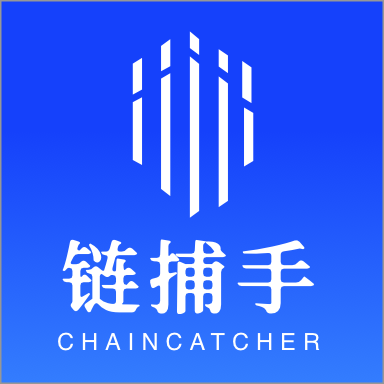Original author: Fairy, ChainCatcher
The founders of the two major public chains are facing off, and Crypto Twitter is full of gunpowder.
A heated debate over "creator tokens" has ignited the crypto community. The founders of two major public blockchains, Base and Solana, have made a rare public appearance, engaging in a head-on confrontation over the ZORA and Pump.fun platforms.
What exactly caused this confrontation? Let's start from the beginning.
The flashpoint of controversy: Sterling Crispin's questioning
This "war of words" in the crypto circle was sparked by Del Complex researcher Sterling Crispin's public questioning of Zora.
Zora is a social networking platform on the Base ecosystem that tokenizes user profiles and posts, aiming to help creators profit directly from their content.
But in Sterling’s view, Zora is just new wine in old bottles. He bluntly stated that the vast majority of tokens issued on automated market makers (AMMs), with extremely low liquidity and exponential price curves, are still “junk coins in a new skin.”
In a debate with community users, he cited Pump.fun as an example: "The median result of the ERC 20 token on Pump.fun did not underperform the market, but directly returned to zero."
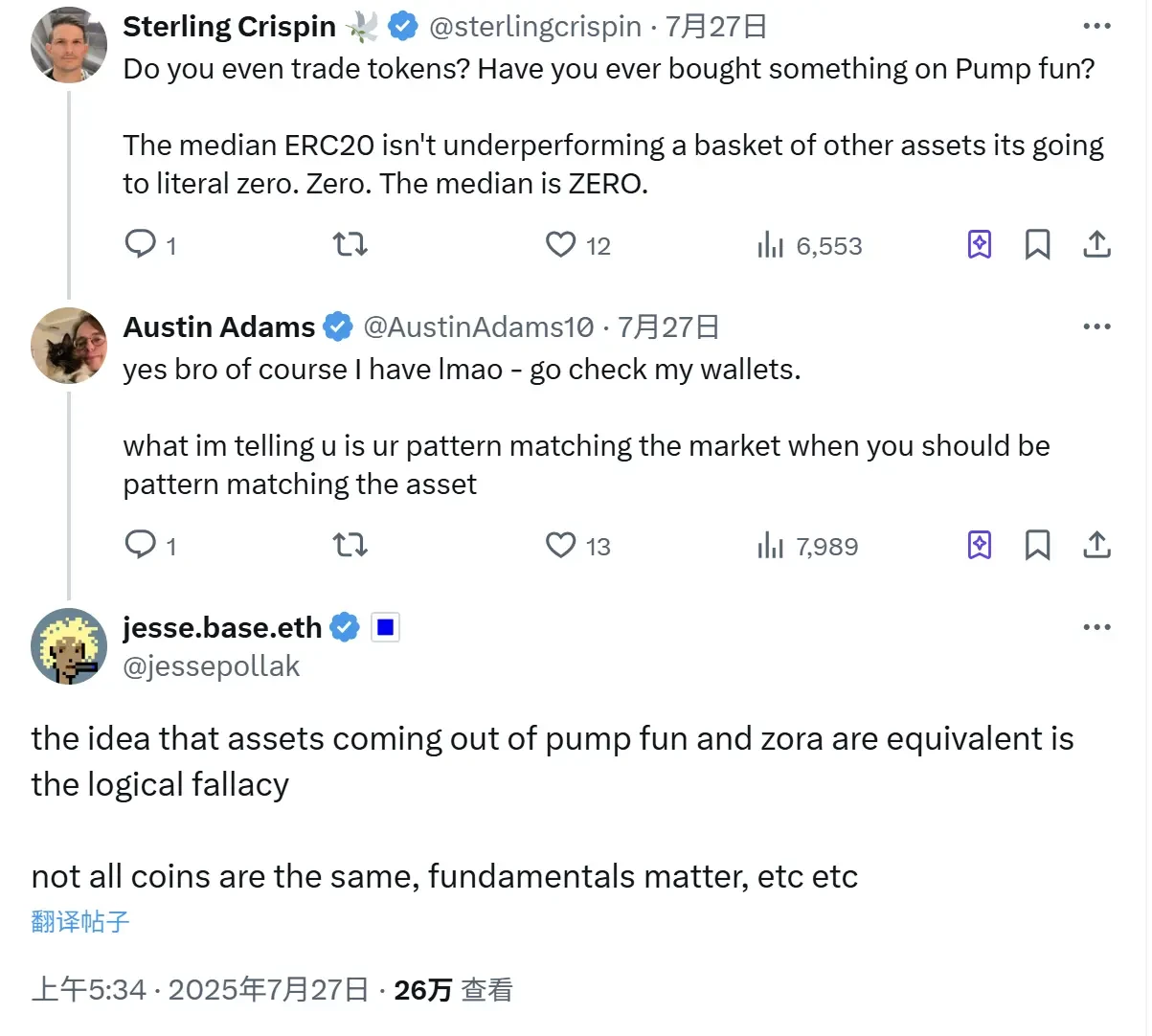
Faced with this fierce questioning, Base founder Jesse Pollak quickly started to defend himself. He said on the X platform: "I think you are wrong. Content is valuable, and creators are valuable." He further emphasized that "it is a logical fallacy to regard the assets issued on Pump.fun and Zora as equivalent. Not all tokens are the same, and fundamentals are important."
However, Jesse's remarks soon irritated another big shot - Solana founder Toly.
Solana founder interrupts, war escalates
Solana founder Toly quickly intervened in the debate, retweeting Jesse’s tweet on X and sarcastically saying, “lol wut? Does the currency on Zora have any rights from the creator’s future cash flow?”
(Note: "lol wut" is English internet slang, with a slight disdain or deliberately confused tone, often used to express disagreement with or absurdity of the other party's point of view.)
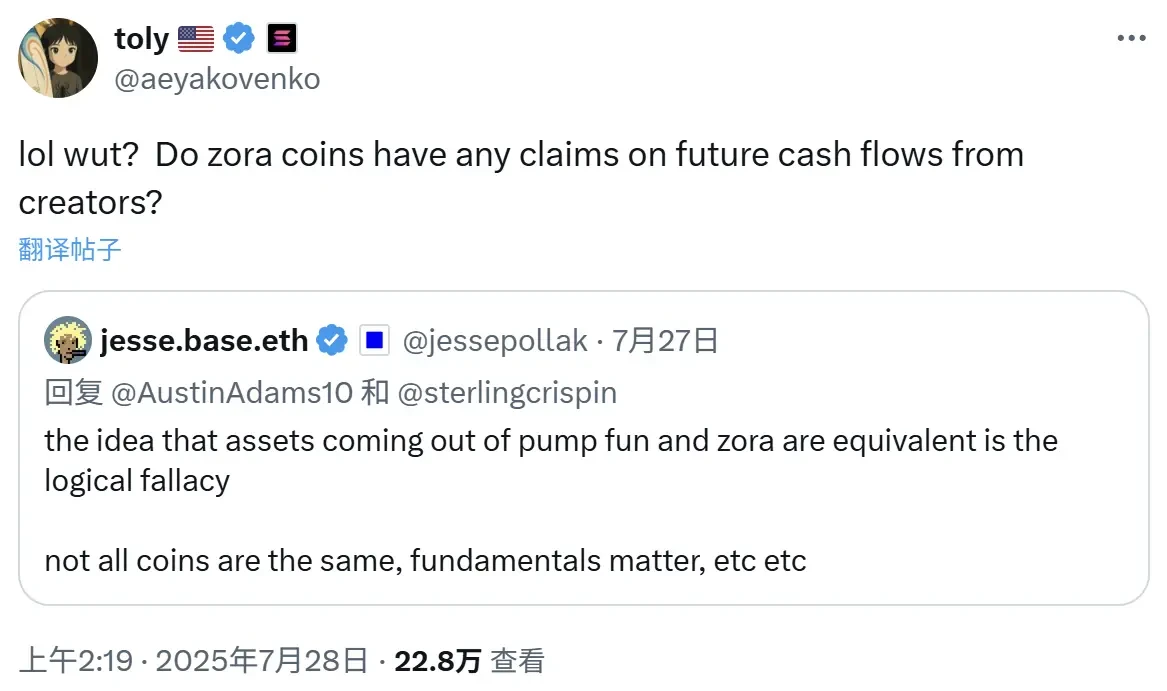
After that, the battle between the two founders officially began:
Round 1: Does the content have “basic value”?
Jesse firmly stated that content itself has fundamental value.
Toly asked: How to prove that it has basic value? Do token holders have the right to share the future advertising revenue of the content?
Jesse responded: Advertising is just a way to monetize. Just like a painting, even if no one pays for the ticket, it still has value.
Toly continued to attack: According to this logic, is it a good thing for retail investors if creators sell Zora tokens, because retail investors can buy below the fundamental value of the content?
Jesse tried to explain: There are many types of tokens on Zora, but they all have one thing in common: they are all repeated, infinite games in which the behavior of the participants affects the operation of the entire system.
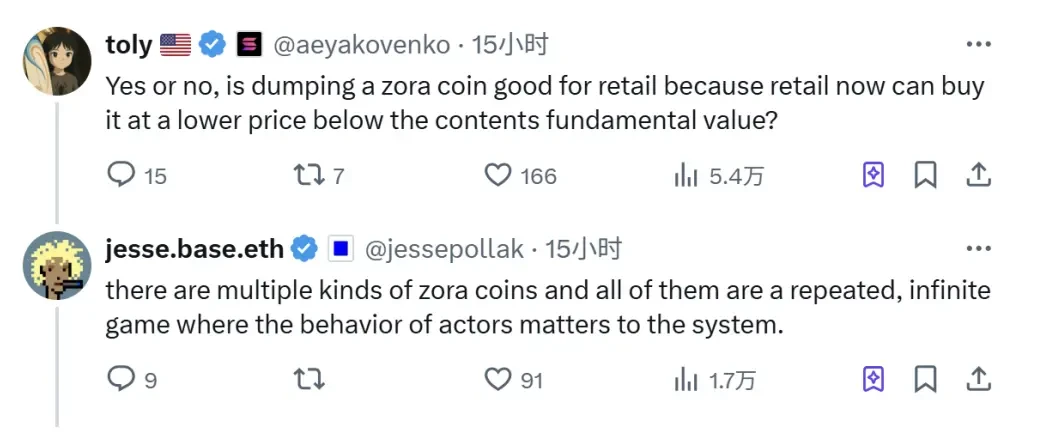
Round 2: No results, neither side gives in
Toly didn't buy it and sneered: It sounds like their "basic value" is zero.
Jesse insisted: If you want to believe that the value of content is zero, that's fine. But I think content itself is very valuable, and we can build a new system to give this value back to hundreds of millions of creators.
Toly threw the final blow: Then you have to convince the coin holders to let Coinbase use the profits to buy up those Zora tokens that are close to zero because they are "lower than the fundamental value of the content."
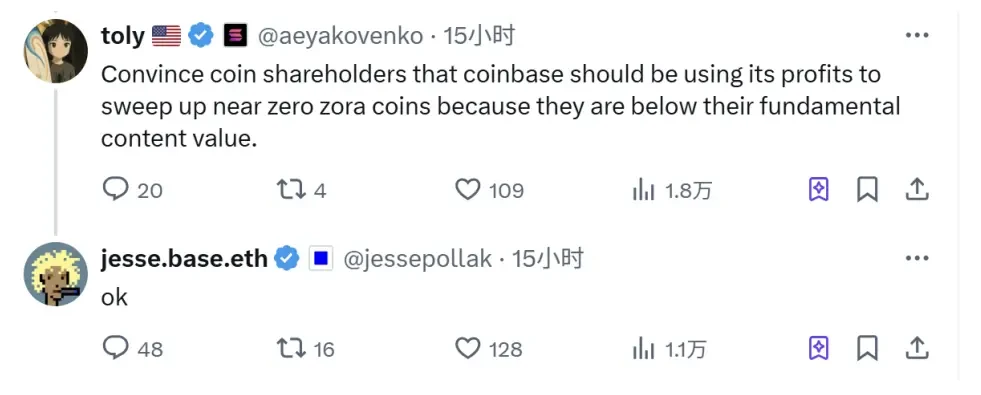
This conversation was like a quarrel between elementary school students, neither side was willing to admit defeat, and it ended abruptly with Jesse saying "OK".
Interestingly, toIy himself has been touting Solana ecosystem meme coins for the past few years, but this time, to make it more convincing, he added: "I have been saying for years that meme coins and NFTs are digital garbage with no intrinsic value at all. Just like the props in the unboxing of mobile games, and people spend up to $150 billion on mobile games every year."
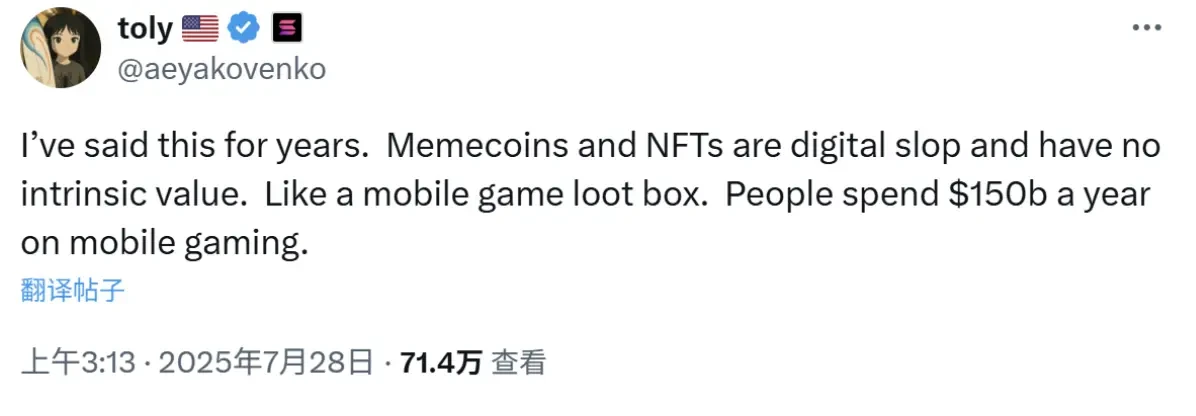
Zora's "Pull Plate Show"
The focus of this "war of words" is the Zora project, which not only has the support of Base founder Jesse Pollak, but also the token $ZORA has soared 883% in the past month. This wave of market is driven by the benefits of Base App's integrated content tokenization function and the support of Binance's launch of ZORA/USDT perpetual contracts.
Yesterday, the number of creators on the Zora platform reached 21,478, including 12,292 new creators, and the number of issued tokens reached 50,475, both of which set historical highs.
However, on-chain data gives another interpretation. According to on-chain analyst AI Aunt, in terms of spot, Coinbase is the platform with the largest trading volume of the token, with a 24-hour turnover of US$82.6 million; and in terms of contracts, Binance's 24-hour trading volume is as high as US$1.354 billion, 16.4 times that of spot.
He stated that ZORA seemed to have developed an independent copycat market, but there were no single transaction records of more than 500,000 US dollars on the chain recently, and it was suspected that the funds in CEX were operating.
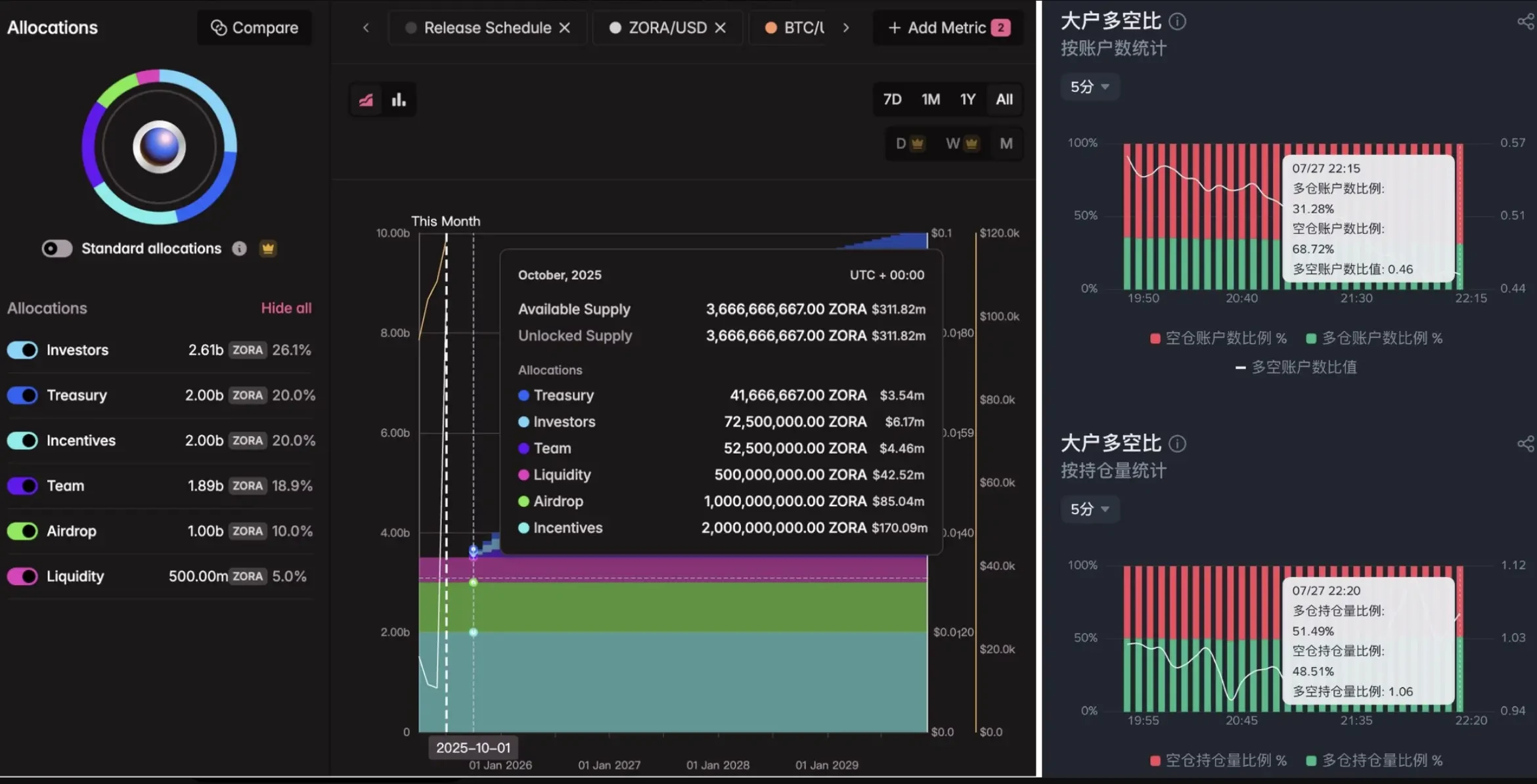
Image source: AI Aunt
The fierce confrontation between Jesse and Toly not only reveals the profound differences in the crypto world on the nature of “creator tokens”, but also reflects the intricate competition and clash of ideas among the public chain camps.
There are no winners in this debate, just like the world's struggle for the definition of values, which is always a fierce game between ideals and reality, faith and doubt.
- 核心观点:公链创始人激辩创作者代币价值。
- 关键要素:
- ZORA代币月涨883%,链上数据存疑。
- Base创始人认为内容有基本价值。
- Solana创始人嘲讽代币无现金流权益。
- 市场影响:加剧市场对创作者代币争议。
- 时效性标注:短期影响。


